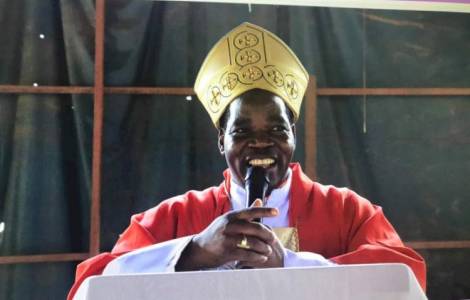
Juba (Agenzia Fides) - Hunger, floods, drought and growing insecurity, a weak economy on the verge of collapse. These are the factors that bring great suffering to the people of South Sudan, says Eduardo Hiiboro Kussala, Bishop of Tombura Yambio.
“Our people continue to suffer the effects of complex emergencies which are still being experienced in many parts of the country, including those parts that had previously been peaceful,” Bishop Kussala said in a statement. “As a result, the number of internally displaced persons who are living in deplorable conditions, and are starving has increased tremendously across the country, with the most affected being women, children, the aged, and people living with disabilities,” said Bishop Kussala. “Those still living in their homesteads are equally facing starvation since most of them have had to, ironically, abandon their sources of livelihood in a bid to save their lives. Most school-going children have had to drop out of school because of insecurity and fear of being forcefully recruited to serve as soldiers in the conflicts”, continued Bishop Kussala.
“It is no longer about the country and its leadership, but about the people of South Sudan who are slowly perishing. Unless cushioned from these calamities, we are afraid that our people will not survive especially because the majority of the population (64%) are helpless youths who have no source of income, while most of the remaining 36% are elderly persons. The situation is dire and therefore in need of urgent intervention" he concludes. In its latest report, released on March 1, the UN Human Rights Commission for South Sudan notes that violence and persistent impunity continue to impact the lives of an extremely vulnerable population and warns that the already dire humanitarian situation in the country is worsening. The elections scheduled for December, the first since Sudan's independence in 2011, are expected to be a milestone in efforts to achieve lasting peace after the end of the civil war that has erupted since 2013 and has killed an estimated 400,000 people. A peace agreement was reached in 2018, but implementation has been slow and violence continues in some parts of the country. (L.M.) (Agenzia Fides, 15/3/2024)